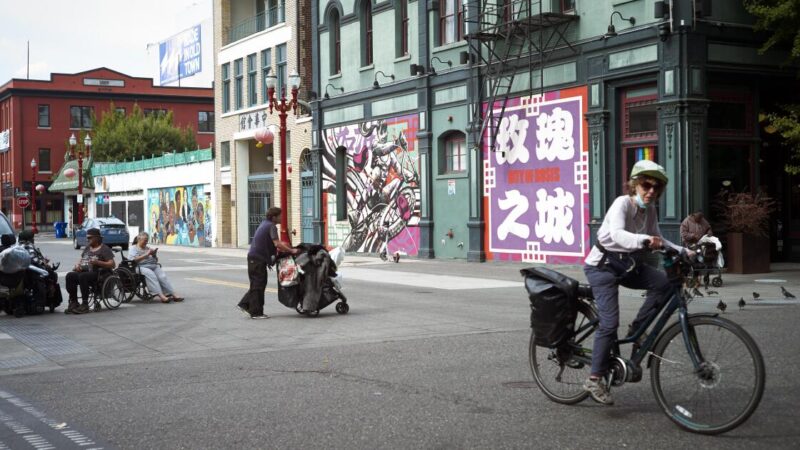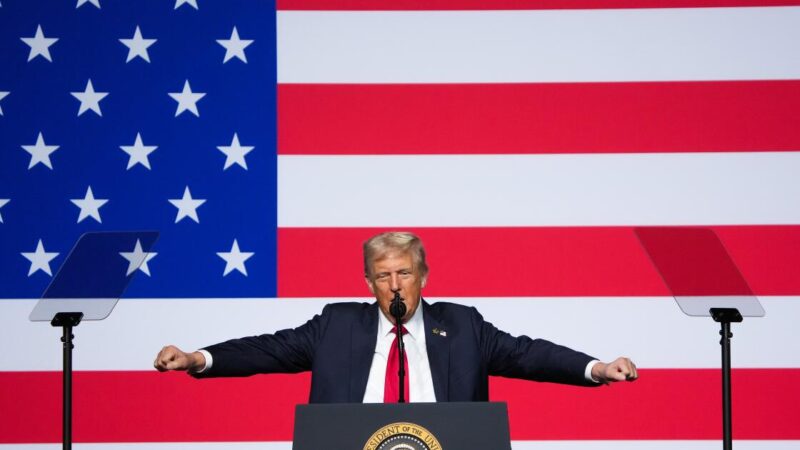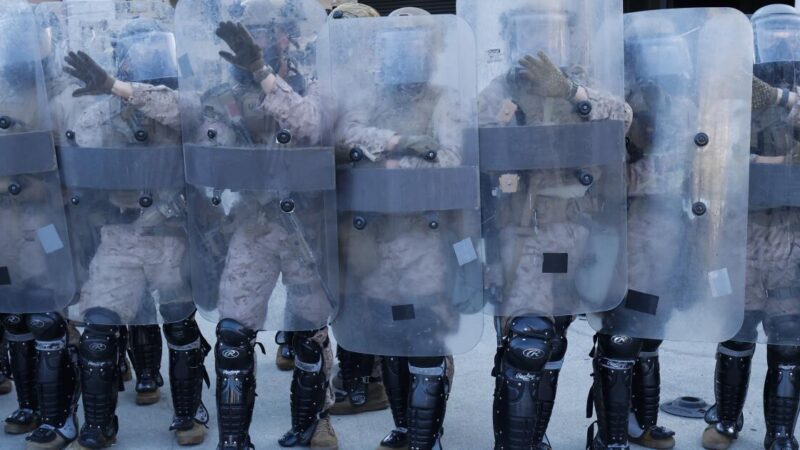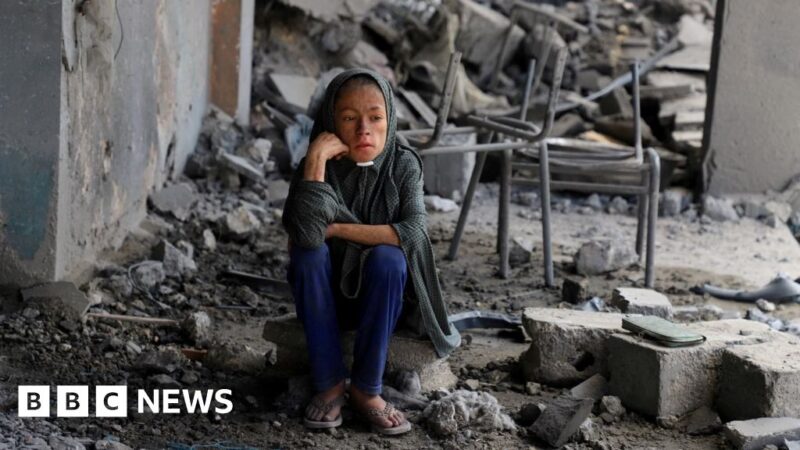Trump administration unconstitutionally targeted noncitizens over Gaza war protests, judge rules
BOSTON — The Trump administration violated the Constitution when it targeted non-U.S. citizens for deportation solely for supporting Palestinians and criticizing Israel, a federal judged said Tuesday in a scathing ruling directly and sharply criticizing President Trump and his policies as serious threats to free speech.
U.S. District Judge William Young in Boston agreed with several university associations that the policy they described as ideological deportation violates the 1st Amendment as well as the Administrative Procedure Act, a law governing how federal agencies develop and issue regulations. Young also found the policy was “arbitrary or capricious because it reverses prior policy without reasoned explanation.”
“This case — perhaps the most important ever to fall within the jurisdiction of this district court — squarely presents the issue whether non-citizens lawfully present here in [the] United States actually have the same free speech rights as the rest of us. The Court answers this Constitutional question unequivocally ‘yes, they do,’” Young, a nominee of Republican President Reagan, wrote.
The Department of Homeland Security did not immediately respond to a request for comment.
Plaintiffs in the case welcomed the ruling.
“The Trump administration’s attempt to deport students for their political views is an assault on the Constitution and a betrayal of American values,” said Todd Wolfson, president of the American Assn. of University Professors union. “This trial exposed their true aim: to intimidate and silence anyone who dares oppose them. If we fail to fight back, Trump’s thought police won’t stop at pro-Palestinian voices—they will come for anyone who speaks out.”
The ruling came after a trial during which lawyers for the associations presented witnesses who testified that the Trump administration had launched a coordinated effort to target students and scholars who had criticized Israel or showed sympathy for Palestinians.
“Not since the McCarthy era have immigrants been the target of such intense repression for lawful political speech,” Ramya Krishnan, senior staff attorney at the Knight First Amendment Institute, told the court. “The policy creates a cloud of fear over university communities, and it is at war with the First Amendment.”
The student detentions, primarily on the East Coast, had caused widespread concern at California universities, which host the largest international student population in the nation and were home to major pro-Palestinian encampments in 2024. At UCLA, faculty earlier this year set up a 24-hour hotline for students who feared being potentially detained by Immigration and Customs Enforcement — although there were no high-profile targeted removals of international student activists.
In separate actions this year, the government also temporarily revoked visas and immigration statuses for students across the UC system and at other U.S. campuses based on minor violations such as traffic tickets. Revocations were reversed nationwide after a federal suit was filed.
In the Boston case, lawyers for the Trump administration put up witnesses who testified there was no ideological deportation policy as the plaintiffs contended.
“There is no policy to revoke visas on the basis of protected speech,” Victoria Santora told the court. “The evidence presented at this trial will show that plaintiffs are challenging nothing more than government enforcement of immigration laws.”
John Armstrong, the senior bureau official in the Bureau of Consular Affairs, testified that visa revocations were based on long-standing immigration law. Armstrong acknowledged he played a role in the visa revocation of several high-profile activists, including Rumeysa Ozturk and Mahmoud Khalil, and was shown memos endorsing their removal.
Armstrong also insisted that visa revocations were not based on protected speech and rejected accusations that there was a policy of targeting someone for their ideology.
One witness testified that the campaign targeted more than 5,000 pro-Palestinian protesters. Out of the 5,000 names reviewed, investigators wrote reports on about 200 who had potentially violated U.S. law, Peter Hatch of ICE’s Homeland Security Investigations unit testified. Until this year, Hatch said, he could not recall a student protester being referred for a visa revocation.
Among the report subjects was Palestinian activist and Columbia University graduate Khalil, who was released last month after 104 days in federal immigration detention. Khalil has become a symbol of Trump’s clampdown on the protests.
Another was Tufts University student Ozturk, who was released in May from six weeks in detention after being arrested on a suburban Boston street. She said she was illegally detained after an op-ed she co-wrote last year criticizing her school’s response to the war in Gaza.
Casey writes for the Associated Press. Times staff writer Jaweed Kaleem contributed to this report.





